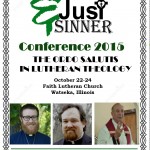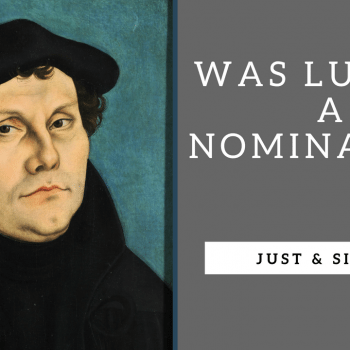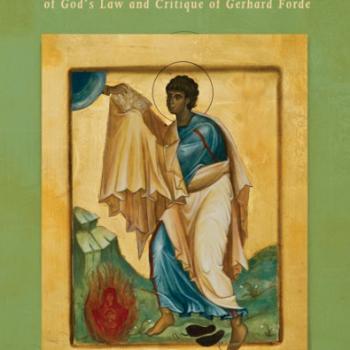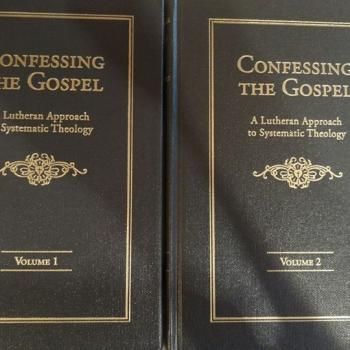Most of my reading tends to be related to my current writing projects. Because of that, I don’t often have the time to read books that I just really want to read. When I do, I tend to gravitate toward Patristic and Medieval theology. Well, I finally had some time to do some reading just for fun and personal edification, so I decided to pick up a copy of Peter Lombard’s The Sentences.
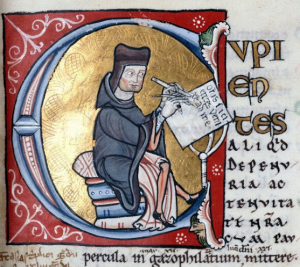 Peter Lombard (1096-1160) is one of the most influential figures in the history of Western theology, yet for some reason, his major work had not been translated into English until recently. Giulio Silano has thus done a great work for the church by translating all four volumes for the Medieval Sources in Translation series from the Pontifical Institute of Medieval Studies. This first volume was published in 2007, with a revision in 2010.
Peter Lombard (1096-1160) is one of the most influential figures in the history of Western theology, yet for some reason, his major work had not been translated into English until recently. Giulio Silano has thus done a great work for the church by translating all four volumes for the Medieval Sources in Translation series from the Pontifical Institute of Medieval Studies. This first volume was published in 2007, with a revision in 2010.
Silano includes a very helpful introduction at the beginning of this work with an overview of Lombard’s life and influence, as well as a short summary of the arguments set forth in this volume. The layout of this book is unfortunately somewhat poor, as the text is much to close to the spine of the book. This means that one might have to bend the pages somewhat excessively to read the entirety of the work. I would also prefer to see such an important work in a hardcover format. These are, however, minor complaints for what is a very valuable publication.
Medieval theology tends to have the reputation of being overly technical, philosophically driven, and scientifically naive. None of these assumptions are warranted in reading Lombard’s work. In this volume, Lombard does not seek to construct a Christian philosophy, nor does he ask an extensive number of useless questions and engage in pointless speculation. Rather, Lombard seeks simply to explain the historic Christian teaching on God and the Trinity. He does this primarily by citing Patristic authors, primarily Augustine, and reconciling teachings from church fathers which seem to conflict with one another.
This book is very well organized. Lombard outlines a number of “distinctions,” which are then followed by short chapters on each topic. In this way, Lombard anticipates the later Loci method which would dominate Western systematic theology. Each distinction contains a question or proposition which is then defended with Patristic citations. He will often then cite something from a father which seems to contradict his claim. He then attempts to harmonize the two statements, and at times he admits that real differences of opinion exist among the fathers. Often the harmonizations are plausible interpretations, but occasionally, Lombard is unwilling to admit that there are differences of opinion among the fathers on various issues where they clearly exist.
The majority of the first volume of Lombard’s work is on the doctrine of the Trinity. Most of this is simply a restatement of Augustine’s masterful De Trinitate. Due to its structure, the work is a little easier to read than De Trinitate, and serves as an accurate summary of Augustine’s Trinitarian theology. He affirms some of the unique aspects of Augustinian Trinitarianism, such as the identification of the Holy Spirit with the love that exists between the Father and Son. In this particular section, Lombard takes great care to emphasize the fact that this language is not speculative, but is grounded in Augustine’s exegesis of 1 John. As a Western theologian, Lombard also defends the filioque, but does not spend as much space to the issue as one might expect for a medieval theologian.
The latter section of Lombard’s work is devoted to the doctrine of God in general. He does not discuss each attribute of God separately as would become customary in a later period. Rather, he addresses several very specific questions related to the doctrine of God regarding God’s omnipotence, foreknowledge, and predestination. Lombard’s treatment of predestination is thoroughly Augustinian. He does not display any hint of the Semipelagianism which would dominate the late medieval era. Lombard argues that God’s predestination is unconditional. He writes: “God elected whom he willed by a freely given mercy, not because the would be faithful in the future, but so that they might be faithful” (228). Lombard explicitly excludes foreseen obedience and faith as a cause of election. Rather, both faith and obedience are a result of God’s election. He is quick to qualify that reprobation is not unconditional, however. Instead, God damns based on one’s rejection of grace. He argues, following Fulgentius, that God doesn’t predestine the person for reprobation, but simply the punishment for their obstinance.
Lombard treats divine foreknowledge in general, and argues that God predestines all good things to happen, but simply foreknows evil actions. God is not a cause of evil. He cites differences among the fathers regarding the nature of God’s willing evil actions, admitting that God wills evil insofar as he can use that evil for good purposes. He does not, however, will the evil act itself.
There is not much in this volume that I would disagree with. It’s largely a restatement of patristic Trinitarian theology. Lombard does not seek to be an innovator, but expounds upon the Western Augustinian tradition, as he understands it, in a systematic fashion. The only place where I disagreed with Lombard is in his section on the will of God, wherein he argues–following Augustine–that the passages referring to God’s universal saving will might actually refer only to the elect (247). Though Lombard might, in this passage, sound rather “Calvinistic,” he is elsewhere extremely careful to separate God from the predestination of evil actions.
Whatever your theological positions are, Lombard will surely prove to be an edifying and challenging read. I look forward to reading the other three volumes, where differences with the author will probably be much more pronounced.


